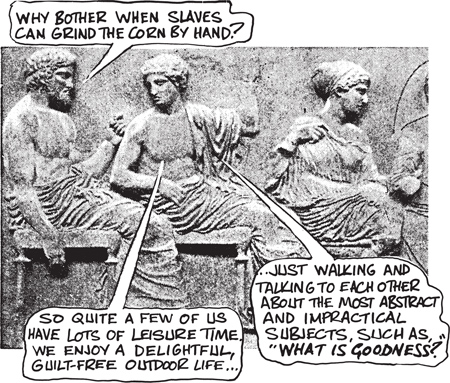Slavery
Although many Athenians had to work hard, higher-class Athenian men did no work at all. There were probably about 80,000 slaves in Athens – some working in appalling conditions in the silver mines, many employed as domestics. Greek philosophers owned slaves. Plato mentions five in his will and Aristotle seems to have had about fourteen. The institution of slavery never seems to have worried these moral philosophers at all. Aristotle seems to have sincerely believed that some people are slaves “by nature”. The institution of slavery also meant that Greek technology was very primitive. No one, for example, thought of transferring the simple technology of the sailing boat to the windmill…
Philosophy was a communal activity, not a solitary pursuit. This is why Plato actually distrusted the new invention of books – they are closed systems of one individual and can never be corrected.
